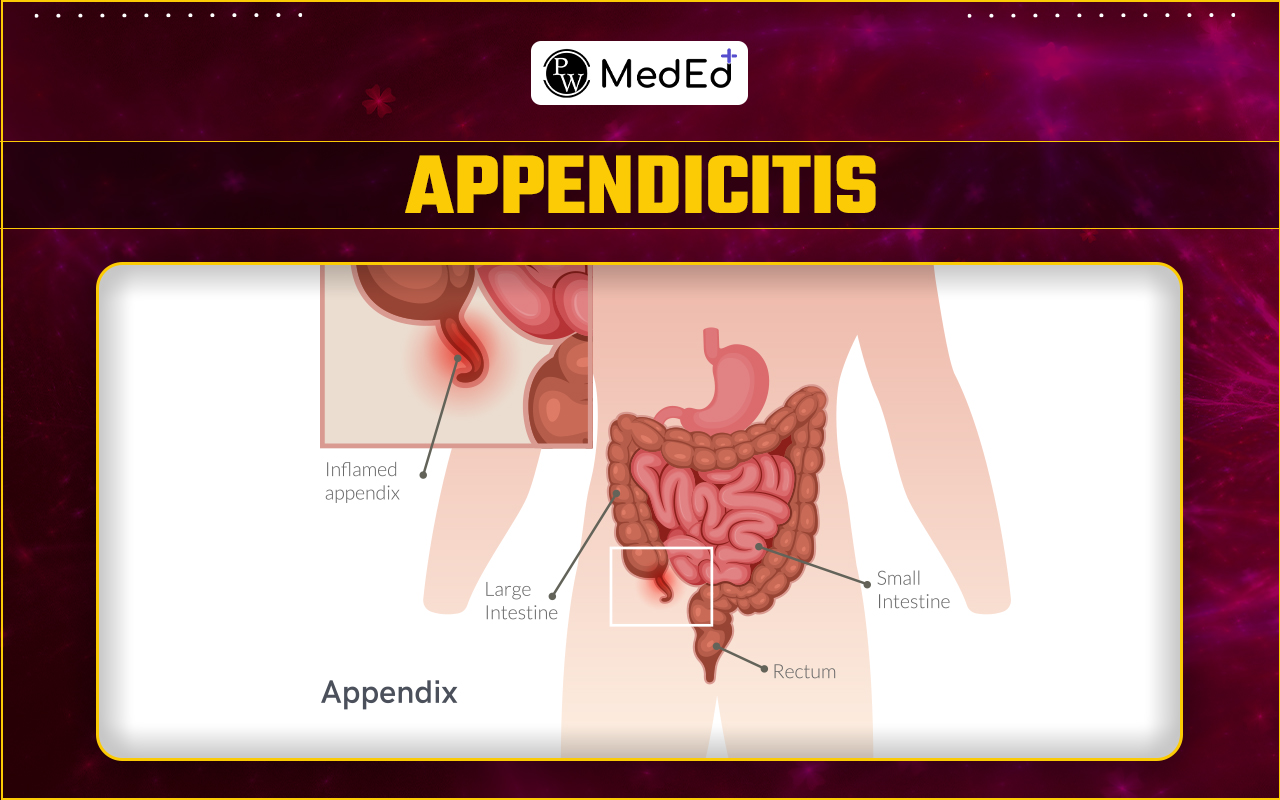

Appendicitis: a common and potentially dangerous disease of young. A serious medical condition that occurs when the appendix, a small, finger-shaped pouch attached to the large intestine, becomes inflamed. This inflammation can lead to a range of symptoms and, if left untreated, can result in severe complications, including the rupture of the appendix.
Visit – MedEd App
Read More - Radiodiagnosis
Appendix
The appendix is a small tube-like structure located in the lower right abdomen. While its exact function is not fully understood, it is generally considered a vestigial organ, meaning it no longer serves a significant purpose in the body. Some theories suggest that the appendix may play a role in the immune system, particularly in maintaining gut flora, but its removal does not seem to cause long-term health issues.
Debate appendix vestigial or not?
While the appendix is not essential for survival—people who have had an appendectomy (surgical removal of the appendix) live normal, healthy lives—the idea that it is completely vestigial is now considered outdated. It appears to have some functions, particularly related to the immune system and gut health, though these are not critical to the point that its removal causes significant harm.
What causes appendicitis?
Appendicitis occurs when the appendix becomes blocked, leading to inflammation. The blockage can be caused by:
Fecaliths : Hardened stool that obstructs the opening of the appendix.
Enlarged Lymphoid Follicles: These are clusters of immune cells that can swell and block the appendix.
Infections: Viral, bacterial, or parasitic infections in the digestive tract can cause the appendix to swell.
Trauma: Abdominal injury can sometimes trigger appendicitis.
Read More - Pharyngeal Arches
Symptoms and Complications
The symptoms of appendicitis can vary but typically include:
Abdominal Pain: Often starting around the navel and then moving to the lower right abdomen. The pain usually worsens over time and can become severe.
Nausea and Vomiting: These symptoms often accompany the abdominal pain.
Loss of Appetite: A sudden loss of appetite is common.
Fever: A low-grade fever may develop as the body fights the infection.
Swelling: The lower right abdomen may become tender and swollen.
Changes in Bowel Movements: Some people may experience diarrhea or constipation.
Read More - Pelvis and Perineum
Diagnosis
Appendicitis can be challenging to diagnose because its symptoms can mimic other conditions like gastrointestinal infections, urinary tract infections, or ovarian problems. To diagnose appendicitis, doctors typically use:
Physical Examination: Checking for tenderness in the lower right abdomen and signs of peritonitis.
Blood Tests: Looking for signs of infection, such as an elevated white blood cell count.
Imaging: Ultrasound or CT scans can help visualize the inflamed appendix and confirm the diagnosis.
Appendicitis FAQs
Is appendicitis really an elite disease?
What is the significance of McBurney’s point in appendicitis?
What is the “hygiene hypothesis”?
What is the significance of inflammation markers in diagnosing appendicitis?












